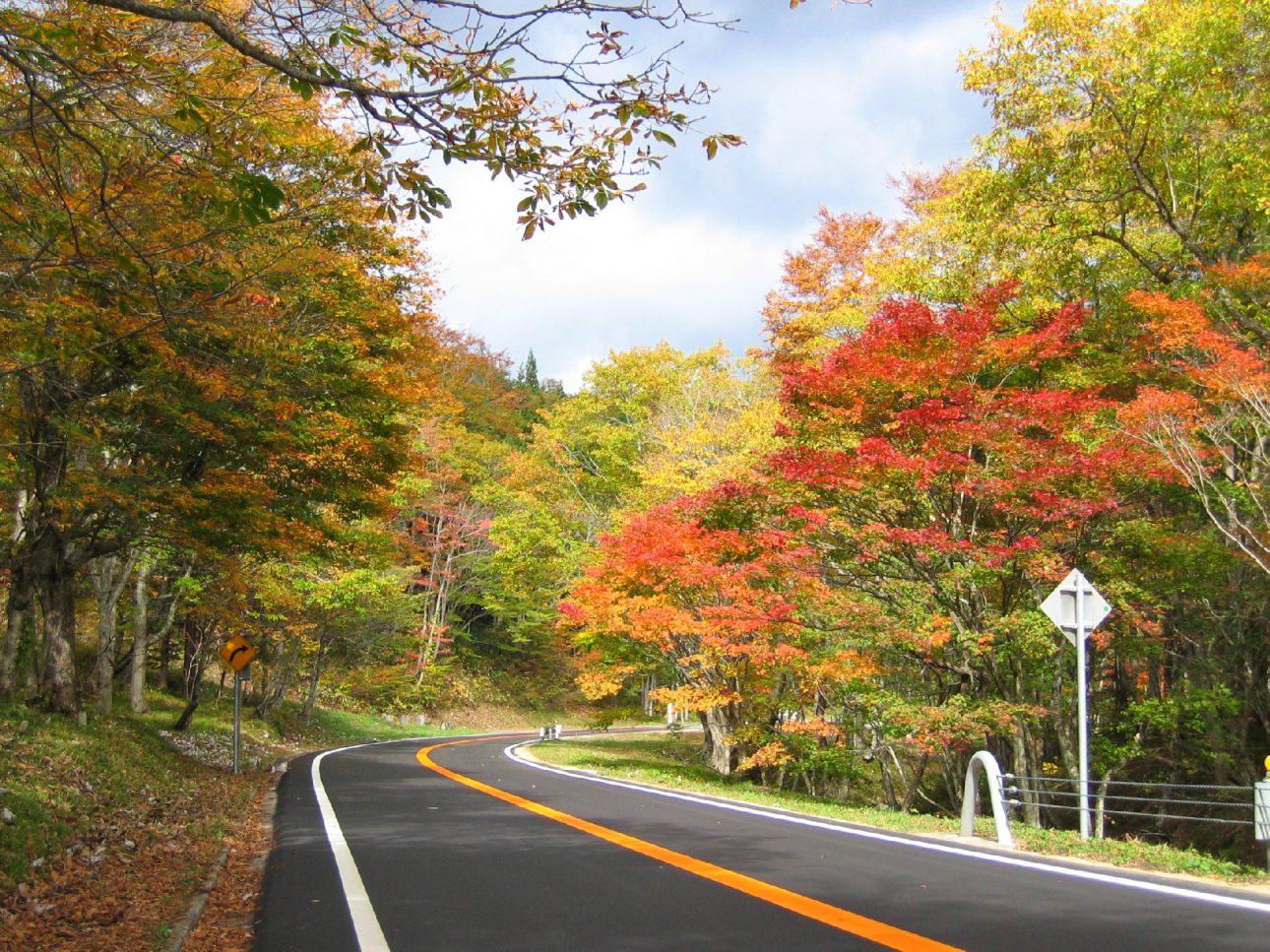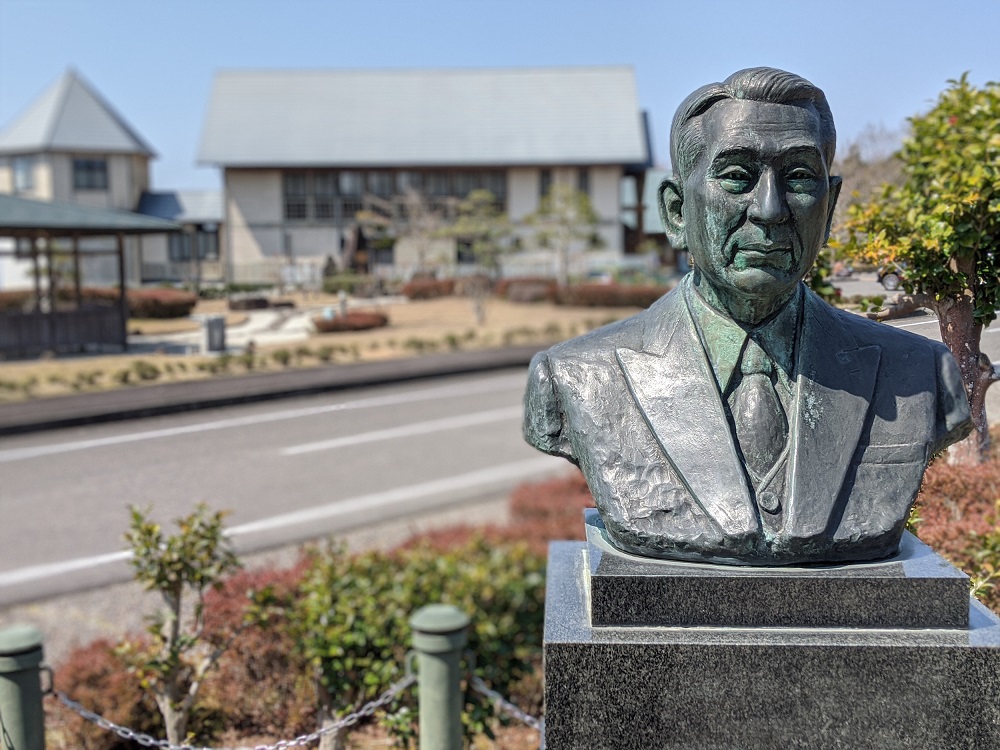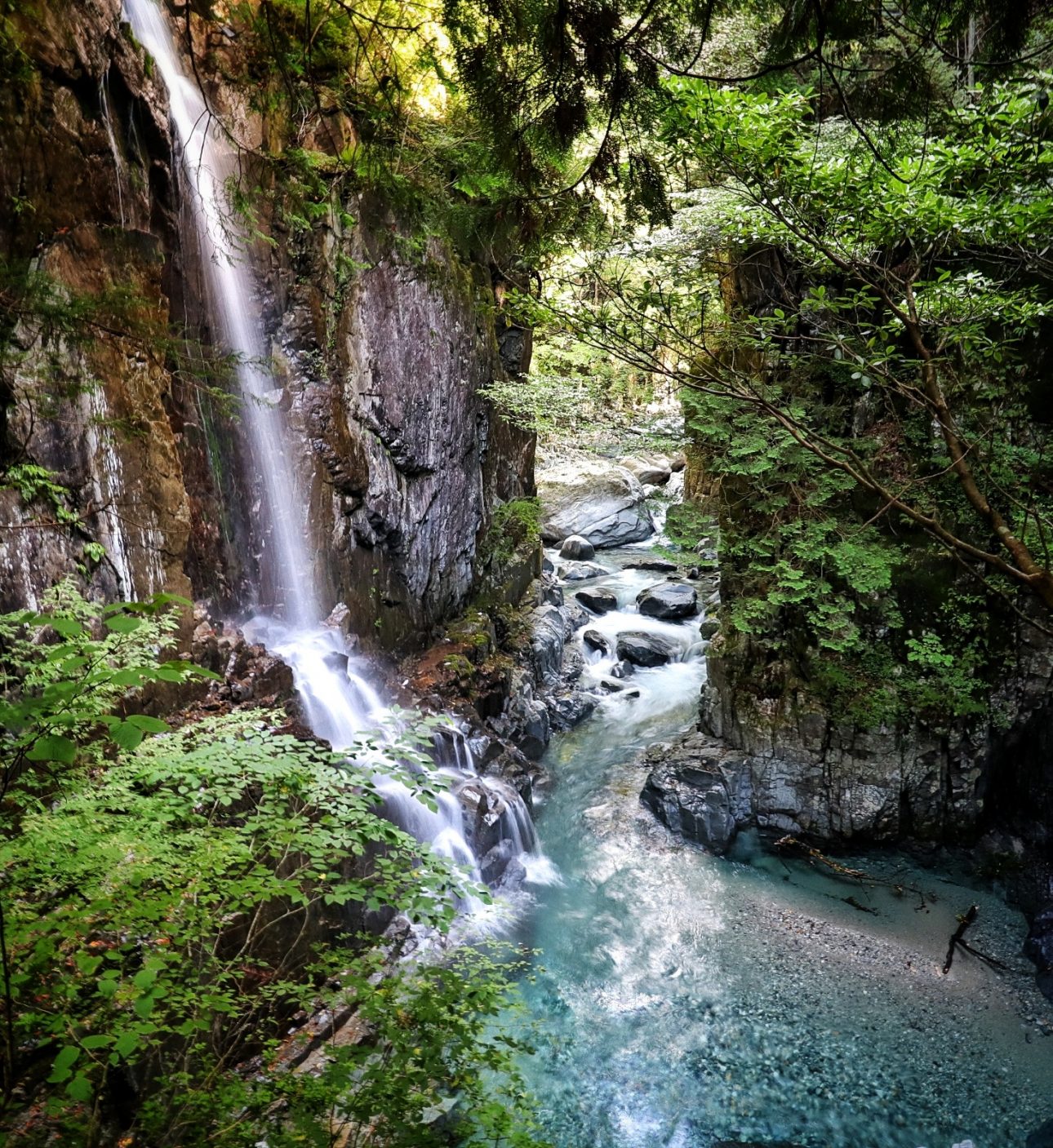Pottery Painting(Duration: 2~3 hours)
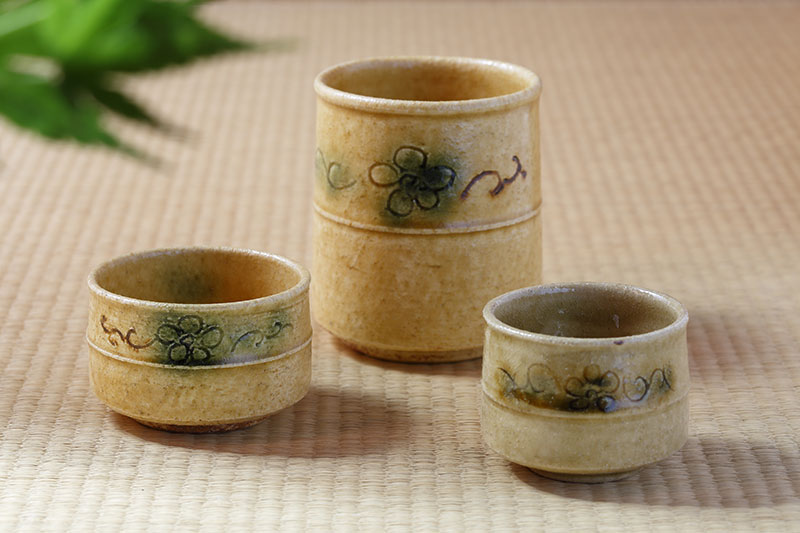
Blessed with rich natural surroundings and excellent clay, Tajimi is heir to a reputation as Japan’s foremost pottery town with over 1,300 years of history. Still today, between ceramics shops, with their kilns and galleries, studio potters cluster in certain areas and streets. Visit and take a ceramic studio tour guided by the professionals and learn all about the craft. Try painting your very own ceramic piece that will be delivered safely to your home after one month or so.
- 1
- Pottery Painting
Tajimi Sta. – Mosaic Tile Museum Tajimi
Mosaic Tile Museum Tajimi

Mosaic Tile Museum Tajimi 
Mosaic Tile Museum Tajimi
The Tajimi Mosaic Tile Museum has an astounding 10,000 exhibits dedicated to tile production. The museum building itself is also a sight to behold. Museum visitors can also take home unique handmade ceramic souvenirs as a memento of their trip to Tajimi. You will fall in love with this unorthodox museum and its unique perspective on the colorful world of mosaic tiles.
- 2
- Mosaic Tile Museum Tajimi
Stay in Tajimi
Tajimi – Cutler SANSYU / Seki Hamono Museum or G.SAKAI
*Check out the Voyagin site for more information.
Cutler SANSYU / Seki Hamono Museum

Cutler SANSYU / Seki Hamono Museum 
Cutler SANSYU / Seki Hamono Museum 
Cutler SANSYU / Seki Hamono Museum
Cutlery shop Sanshu was established and started selling and reparing military swords in 1938. Today, at Cutler Sanshu, the idea is not only to sell knives, but also the soul and techniques in the background of every piece. Experience the artistry and precision of traditional Japanese sword craftsmanship through Sanshu’s immersive tours, offering insights into swordsmithing, scissor assembly, and ‘iai’ performance.
- 3
- Cutler SANSYU / Seki Hamono Museum
or
Hunting Knife Making G.SAKAI

Hunting Knife Making G.SAKAI 
Hunting Knife Making G.SAKAI 
Hunting Knife Making G.SAKAI 
Hunting Knife Making G.SAKAI
Experience the thrill of making a knife of your very own. Choose a hunting knife or a kitchen knife and get to work on creating your own masterpiece. The workshop has a full set of working tools and a professional technician who will provide guidance as an instructor so that you can work safely. The knife can be finished in one day with the knowledge of how to use and sharpen knives properly.
- 3
- Hunting Knife Making G.SAKAI
Cutler SANSYU / Seki Hamono Museum or G.SAKAI
– Seki Traditional Swordsmith Museum
Seki Traditional Swordsmith Museum

Seki Traditional Swordsmith Museum 
Seki Traditional Swordsmith Museum 
Seki Traditional Swordsmith Museum
Live the history and tradition of a 700-year-old art at the Seki Traditional Swordsmith Museum. Visit on the day once a month, where you can watch live swordsmithing. Or for a truly special event, visit on January 2nd’s Uchizome-shiki Ceremony, the first forging of the year; swordsmiths in traditional white attire pound raw steel and send out wild sparks in the process.
- 4
- Seki Traditional Swordsmith Museum
Hamonokaikan-mae – Mino
Stay in Mino-city
Walking in Udatsu Wall Historical District

Walking in Udatsu Wall Historical District 
Former Imai Family Residence
Once a bustling merchant district, Mino City was famed for their production of Mino washi. Mino washi is a type of traditional paper that was developed due to the rich nature such as the clear-water streams of the area. The success of Mino washi allowed the street to build and retain many of their Udatsu raised walls, which were a sign of status of the wealthy back in the Edo period.
- 5
- Walking in Udatsu Wall Historical District
Washi Making

Washi Making 
Washi Making
Mino City is a historic washi-manufacturing town in Gifu Prefecture with a 1300-year heritage. The traditional process of making washi is designated as a UNESCO Intangible Cultural Heritage, while Mino washi itself is further designated as a Traditional Craft by Japan’s Ministry of International Trade and Industry, thanks to the vital role it has played in Japanese culture and history. Why not join in a truly authentic experience making Mino washi by hand.
- 6
- Washi Making
Mino-Gifu Sta
Walking around Kawaramachi District
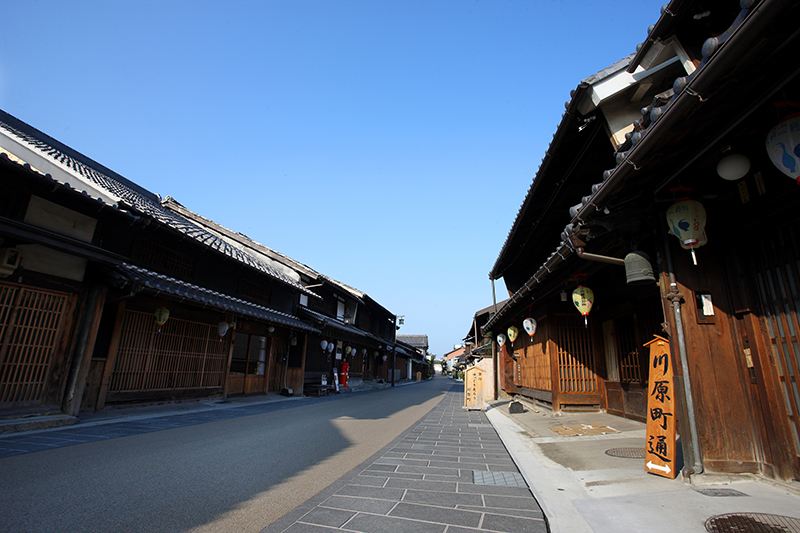
Enjoy the uniquely relaxing atmosphere of walking around the old-timey streets of the Kawaramachi District. Stop by one of the local handicrafts stores for a one-of-a-kind handmade souvenir. Go on a pleasant walk of the area and observe all it has to offer travelers; you are sure to be delighted by its charm.
- 7
- Walking around Kawaramachi District
Naragawa River Cormorant Fishing

Naragawa River Cormorant Fishing 
Naragawa River Cormorant Fishing
For those visiting Gifu between May 11th and October 15th, make sure to catch the “Ukai” — a 1300-year tradition of sweetfish fishing using flaming torches and cormorants. See the spectacle that even Charlie Chaplin himself came to watch not once, but twice! With Gifu Castle as the night backdrop to the flame-lit dance between bird, master, and fish, you’ll be entranced by the magic.
- 8
- Naragawa River Cormorant Fishing
Stay in Gifu



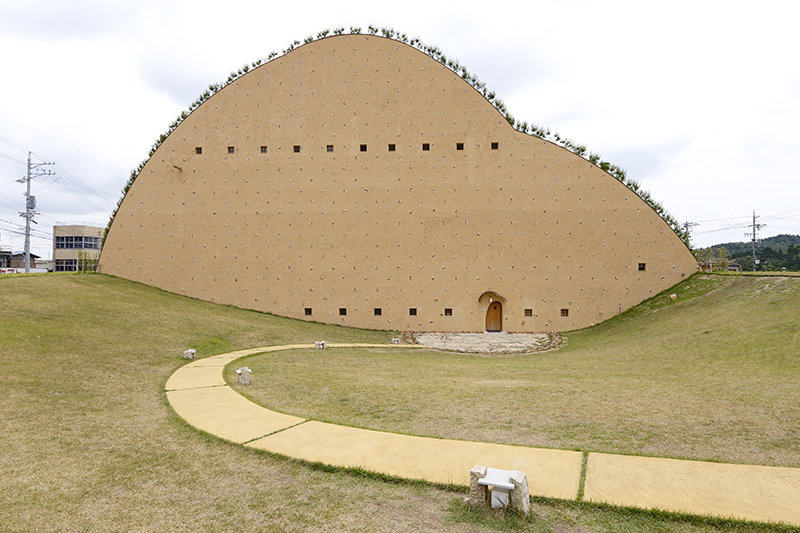




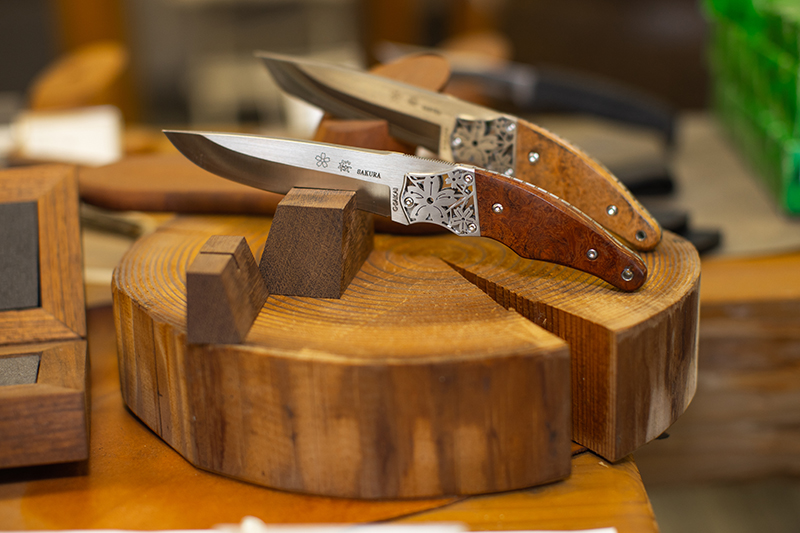



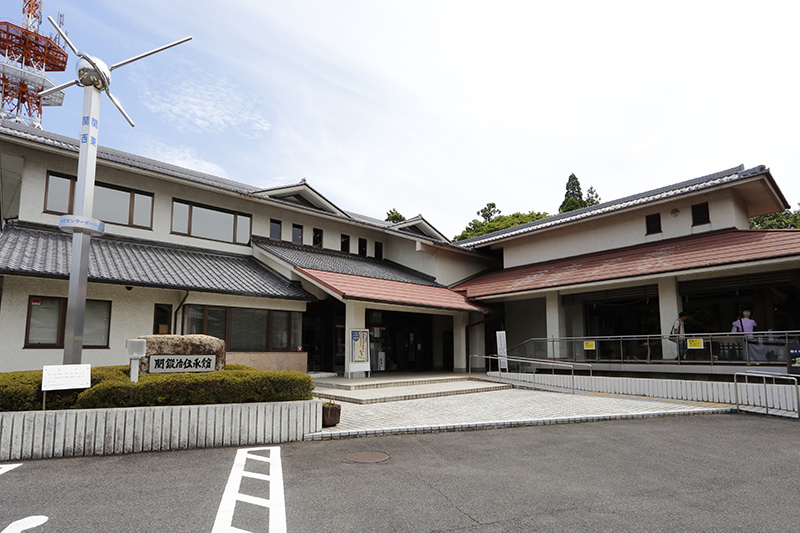


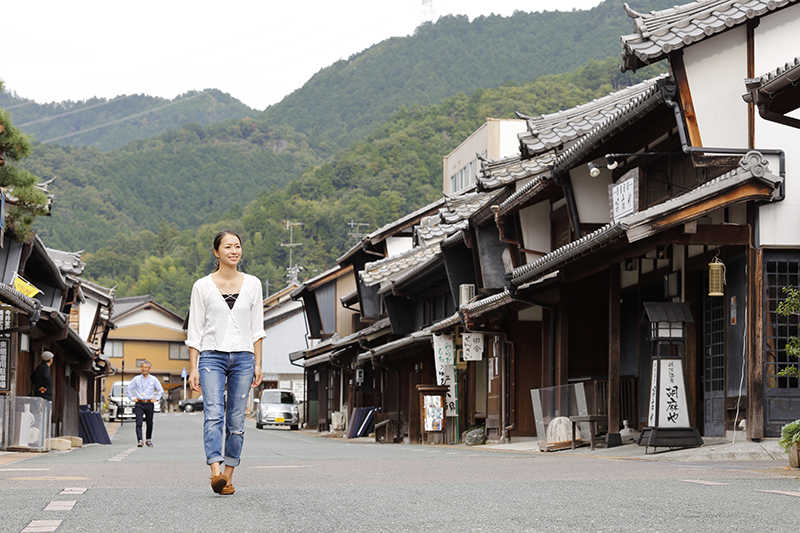

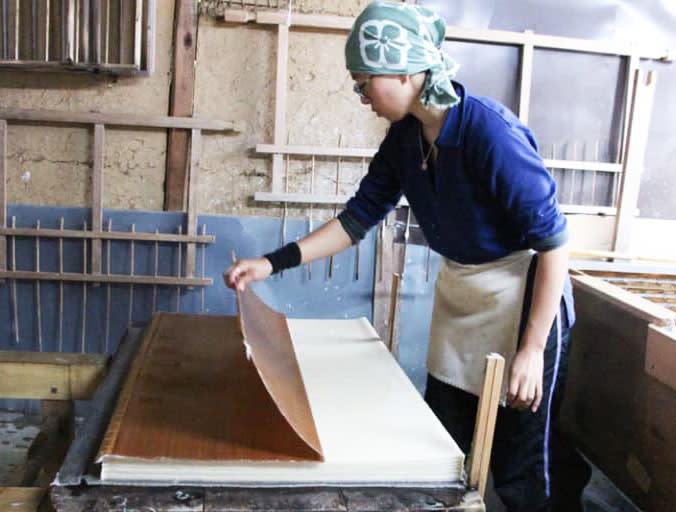

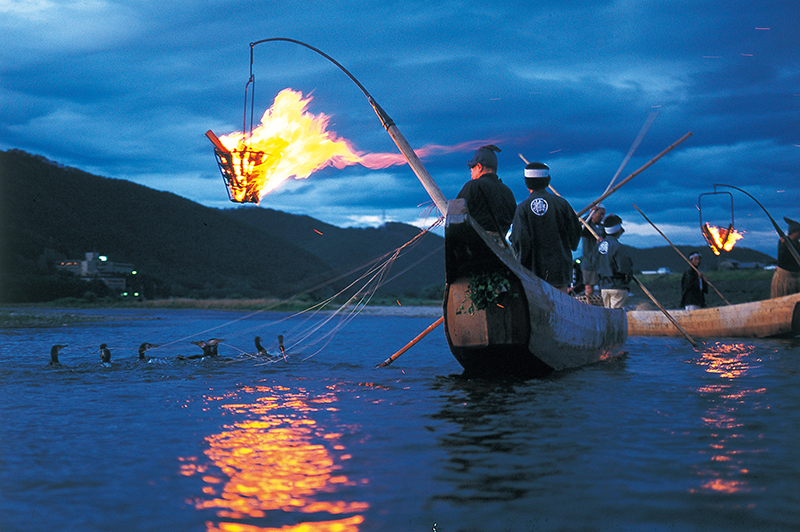

 Twitter
Twitter
 Facebook
Facebook





